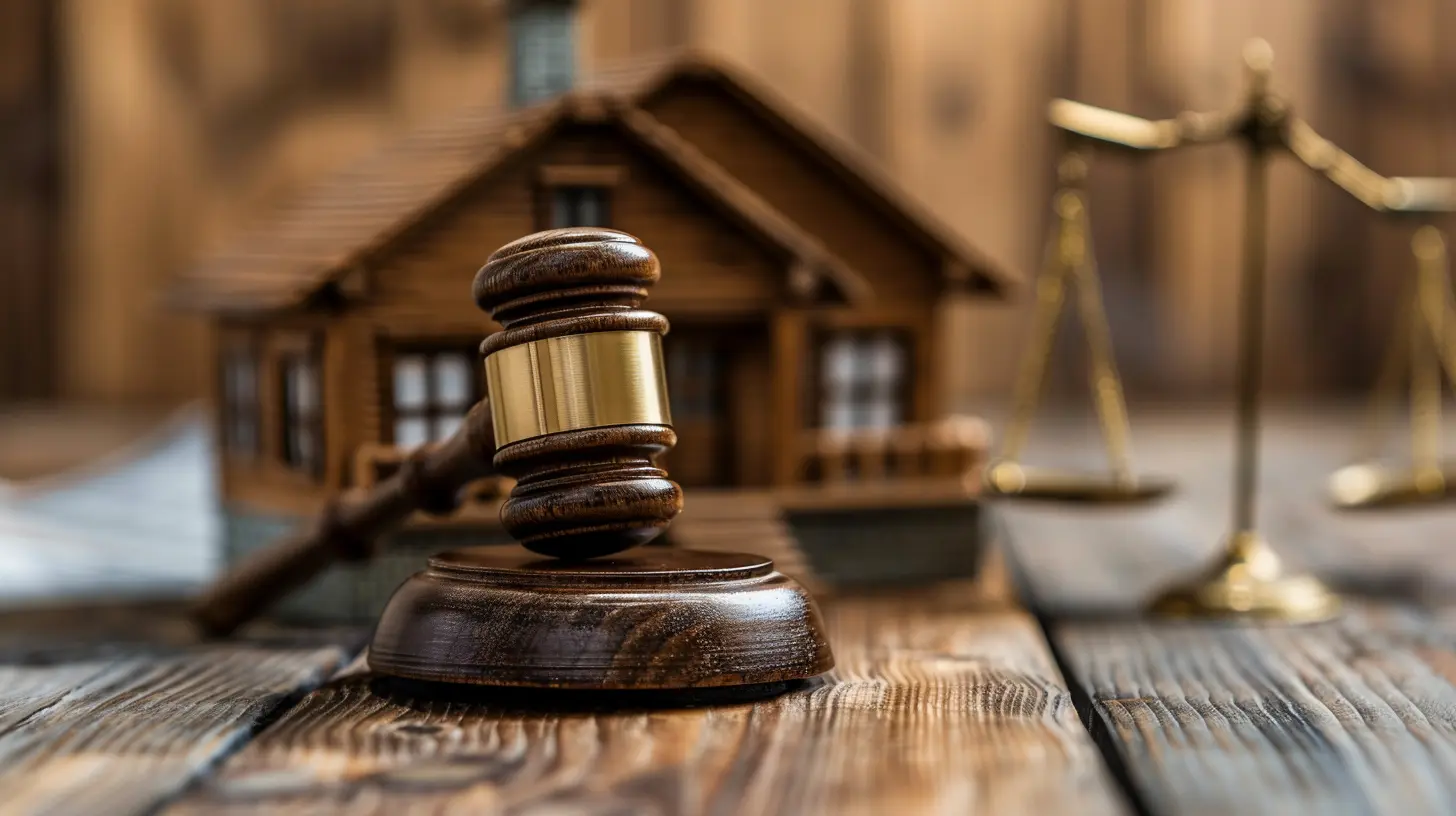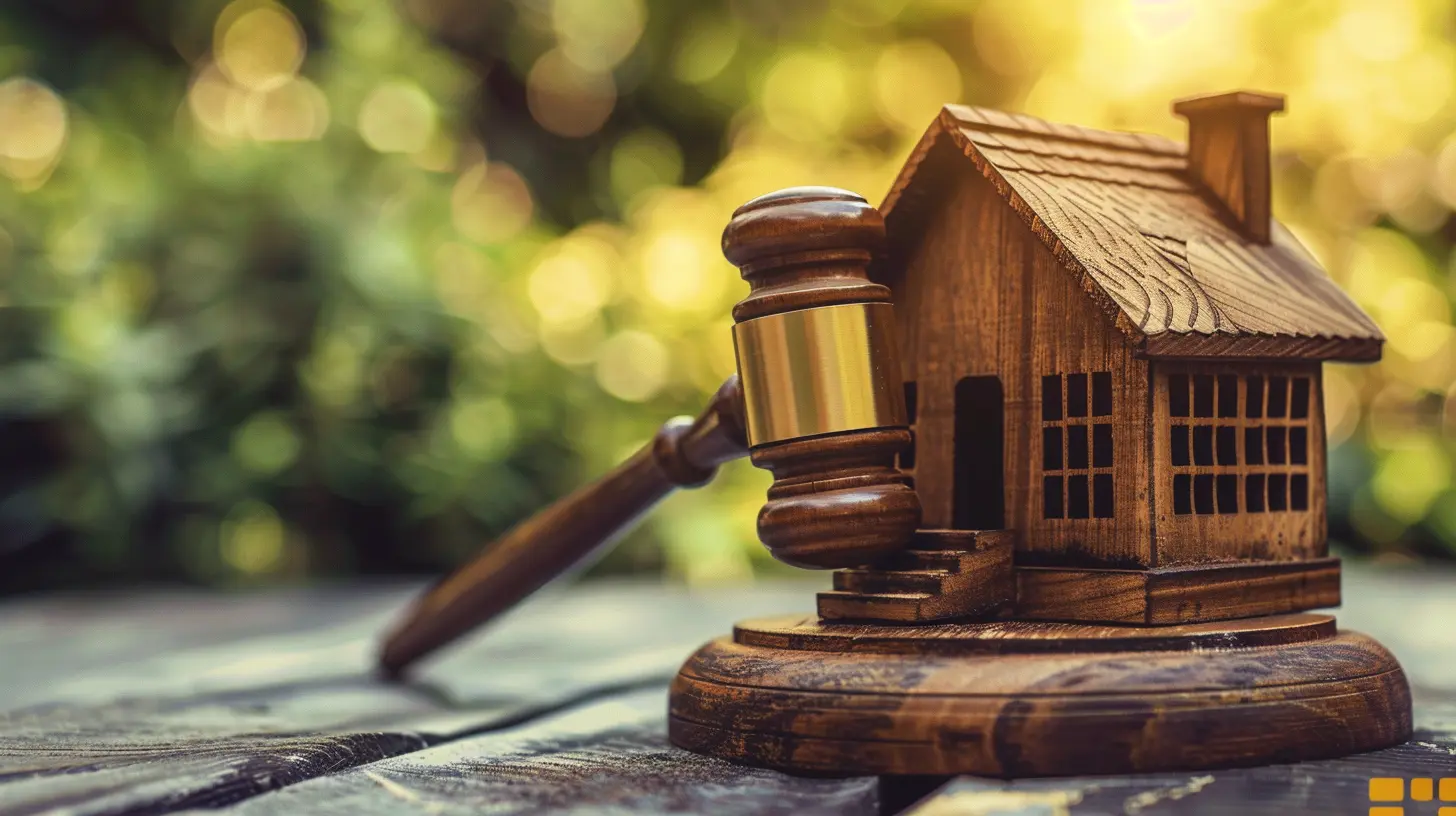What Are Squatter’s Rights? Understanding Adverse Possession in Real Estate
14 November 2025
If you’ve ever heard stories of people living in abandoned homes or vacant lots for years and then legally claiming ownership, you might have wondered—how is that even possible? Believe it or not, there’s a legal principle behind it: squatter’s rights, also known as adverse possession.
At first glance, it sounds like something out of a movie—someone lives in a place long enough and suddenly, it's legally theirs? But adverse possession is more than just an urban legend—it's a real legal doctrine that has been around for centuries. So, how does it work? Can anyone just move into an empty house and claim ownership? Let’s break it all down.
What Are Squatter’s Rights?
Squatter’s rights refer to the legal protections that allow a person who occupies a property without permission to potentially gain legal ownership under certain conditions. The key legal concept behind squatter’s rights is adverse possession.In simple terms, adverse possession allows someone to claim ownership of a property if they’ve been occupying it openly, continuously, and without the owner’s objection for a certain period. States have different laws and time requirements for this to happen, but the basic idea remains the same: if the legal owner neglects their property while another person uses it, the law might eventually recognize the occupant as the rightful owner.
Sounds crazy, right? But there’s logic behind it. Let’s dig deeper. 
The Logic Behind Adverse Possession
The idea of adverse possession isn’t about rewarding trespassers—it’s about making sure land is used productively. If someone owns a property but abandons it for years, leaving it to deteriorate, while another person takes care of it, improves it, and treats it as their own, the law sometimes favors the productive use of the land.Think of it this way: Imagine a neighbor puts up a fence that unknowingly extends onto your property by a few feet. If you notice it but do nothing for years, never objecting or asking them to move it, the law might eventually decide that your neighbor has a legal right to that portion of land.
The same concept applies on a larger scale when someone lives in an abandoned home or on unused land. If the rightful owner neglects it while someone else continuously uses and maintains it, the legal system, in some cases, grants ownership to the person actually using the land. 
How Does Adverse Possession Work?
Now, before you start eyeing that empty house down the street, know that adverse possession isn’t as easy as just moving in and waiting it out. There are strict legal requirements that must be met before someone can claim ownership of a property.Here are the key conditions that typically need to be met for adverse possession:
1. Actual Possession
The squatter must physically occupy the property. Living on the land, maintaining it, and making improvements show a clear intent to use it as their own.2. Open & Notorious Possession
The occupation must be obvious to anyone, including the legal owner. If a squatter is secretly living in a home without anyone knowing, it doesn't count.3. Exclusive Possession
The squatter must be the only one possessing the property. If they share it with others, such as the general public or the original owner, they lose their chance of claiming ownership.4. Hostile Possession (Without Permission)
"Hostile" doesn’t mean aggressive—it simply means the possession is without the legal owner's permission. If the owner allows someone to live there (like a tenant), adverse possession doesn’t apply.5. Continuous Possession for a Statutory Period
The squatter must occupy the property continuously for a set number of years (which varies by state). If they leave for an extended period, the clock resets.In the U.S., the required time period ranges from 5 to 30 years, depending on the state. For example, in California, squatters need to live on a property for five continuous years before they can claim it, while in Texas, the required period is ten years. 
Can Property Owners Prevent Squatters?
Absolutely! If you own property, the last thing you want is to lose it due to inaction. Here’s how you can protect yourself from squatters:1. Regularly Inspect Your Property
If you own vacant land or an unoccupied house, check on it frequently. If you notice signs of trespassing, take action immediately.2. Secure the Property
Lock doors and windows, put up fences, and post "No Trespassing" signs. The harder it is to access your property, the less likely squatters will settle in.3. Evict Unauthorized Occupants Quickly
If you discover a squatter, don’t wait—begin legal proceedings right away. In most cases, you’ll need to go through formal eviction, even if they’re trespassing.4. Pay Property Taxes
Some states allow squatters to claim property faster if they pay property taxes on it. By keeping your taxes up to date, you make it harder for someone else to make an ownership claim.5. Lease the Property
If you’re not using your land or home, consider renting it out. Having a legal tenant occupying the space reduces the risk of squatters moving in.Common Misconceptions About Squatter’s Rights
There’s a lot of confusion around adverse possession, so let’s clear up some common myths.1. Squatters Can Instantly Claim a Property
False! Squatters can’t just move in and legally own a property overnight. They must meet all legal requirements over a period of many years.2. Squatters Can Take Over Any Property
Not true. If a property owner regularly maintains, secures, and uses their property, squatters have no legal standing to claim it.3. Paying Utility Bills Gives Squatters Ownership
Nope! While paying property taxes can sometimes help a squatters' case, paying for utilities like water and electricity doesn’t grant ownership rights.4. Owners Can't Do Anything Once a Squatter Settles In
Wrong! Property owners have legal rights and can remove squatters by going through the proper eviction process.Adverse Possession Laws by State
Since adverse possession laws vary by location, it’s crucial to check your state’s specific requirements. Here’s a general idea of the possession periods required across a few states:- California – 5 years
- Texas – 10 years
- Florida – 7 years
- New York – 10 years
- Georgia – 20 years
These timeframes only represent one piece of the puzzle—each state has unique laws regarding documentation, tax payments, and other factors. If you're concerned about squatters or interested in adverse possession, consulting a real estate attorney is always a smart move.
Final Thoughts
Squatter’s rights and adverse possession may sound like loopholes, but they actually serve a legal purpose: ensuring land is used efficiently. However, property owners must stay vigilant to protect their real estate investments from unwanted occupants.If you own vacant property, stay proactive—secure it, inspect it, and take action immediately if you spot unauthorized occupants. Adverse possession only benefits those who take ownership seriously, so whether you're a homeowner, real estate investor, or just someone curious about real estate law, being informed is your best defense.
Would you ever take advantage of adverse possession if the opportunity arose? Let us know your thoughts!
all images in this post were generated using AI tools
Category:
Real Estate LawsAuthor:

Cynthia Wilkins
Discussion
rate this article
1 comments
Zayden Thornton
Thank you for this insightful article! Understanding squatter's rights and adverse possession is crucial for both property owners and potential claimants. Your clear explanations make complex legal concepts accessible. Great job!
November 15, 2025 at 4:14 AM

Cynthia Wilkins
Thank you for your kind words! I'm glad you found the article helpful in understanding these important concepts.


